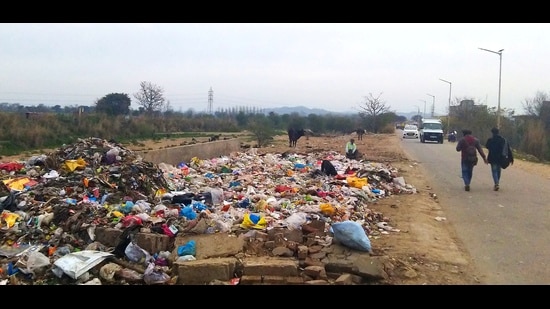Climbing up the Swachh ladder
India aims to be garbage-free by 2026. It is a tough challenge, but cities must rise to it – just as Indore, Surat and Navi Mumbai are doing
The Swachh Bharat Survekshan began small in 2016 as a pilot project in 73 cities. Today, it has more than 4,355 cities, towns, and urban local bodies competing for the cleanest city tag. The increasing number of participating cities is a good omen; it shows that they are keen to clean up their act and provide residents with a better quality of life. The 2022 crown was won by Madhya Pradesh’s Indore for the sixth consecutive year; Gujrat’s Surat is at number 2; and Navi Mumbai in Maharashtra is third. Delhi (New Delhi Municipal Corporation), meanwhile, is at the ninth spot. Noida in Uttar Pradesh, which neighbours the Capital, is 11th.

The central Indian town’s back-to-back victories are a testimony to the vision of the Indore Municipal Corporation (IMC), its astute ground-level planning and the wholehearted participation of the citizenry and political leaders. The city’s first focus was to be Open Defecation Free and landfill-free. Once the two goals were achieved, IMC started zeroing in on waste management by making recycling, reusing, and disposing of waste organised. However, the critical factor that helped the civic body and the cleanliness project was source segregation of garbage and strict monitoring. For example, a control-cum-command centre was set up to track the movement of garbage collection vehicles from neighbourhoods to the processing centre, where the garbage was sorted into six categories. Citizens, safai mitras and elected representatives played a key role.
The success of Indore is a lesson to other cities that these standards can be achieved with meticulous planning and proper execution capability. The model has also shown that waste is a resource that can be reused and recycled. While it is imperative to prevent fresh waste from reaching existing dumpsites, the cities must also deal with their legacy waste. According to the Centre for Science and Environment, the legacy waste management toolkit of all cities must include a proper waste management plan, ensure maximum utilisation of recovered fractions; reuse the reclaimed land (landfills), build the capacity of their officials and ensure the construction and operation of sanitary landfills. India aims to be garbage-free by 2026. It is a tough challenge, but cities must rise to it – just as Indore, Surat and Navi Mumbai are doing.
All Access.
One Subscription.
Get 360° coverage—from daily headlines
to 100 year archives.



HT App & Website







